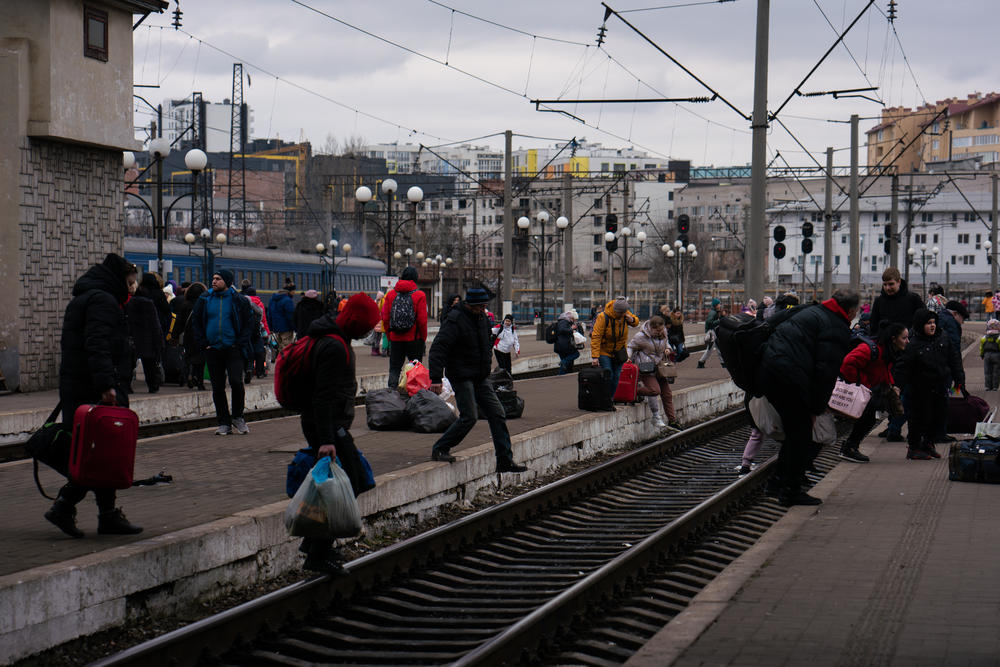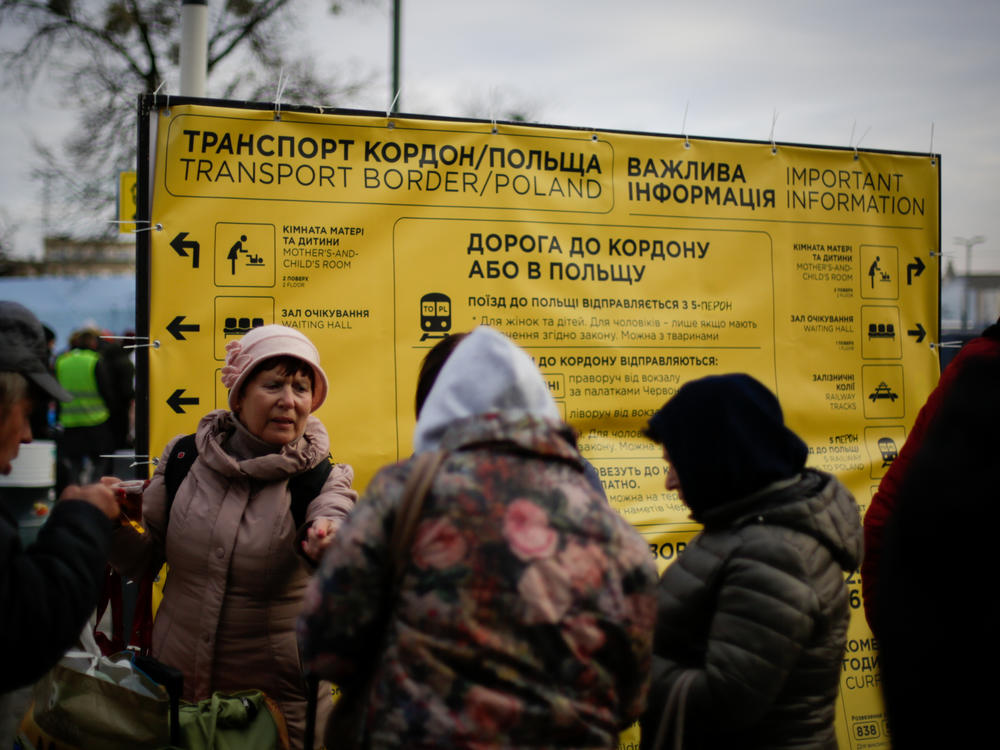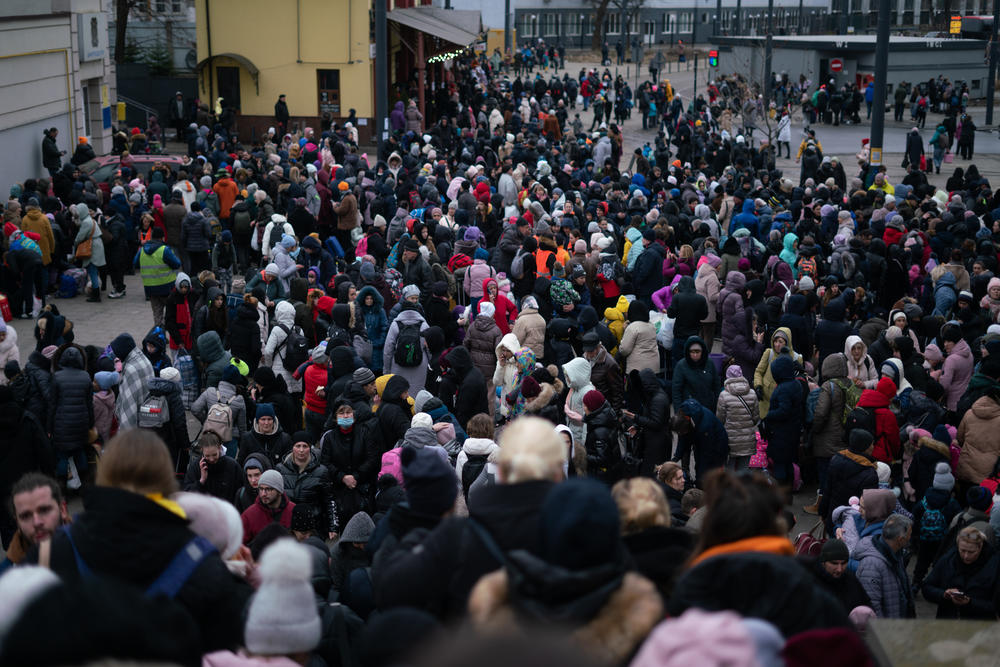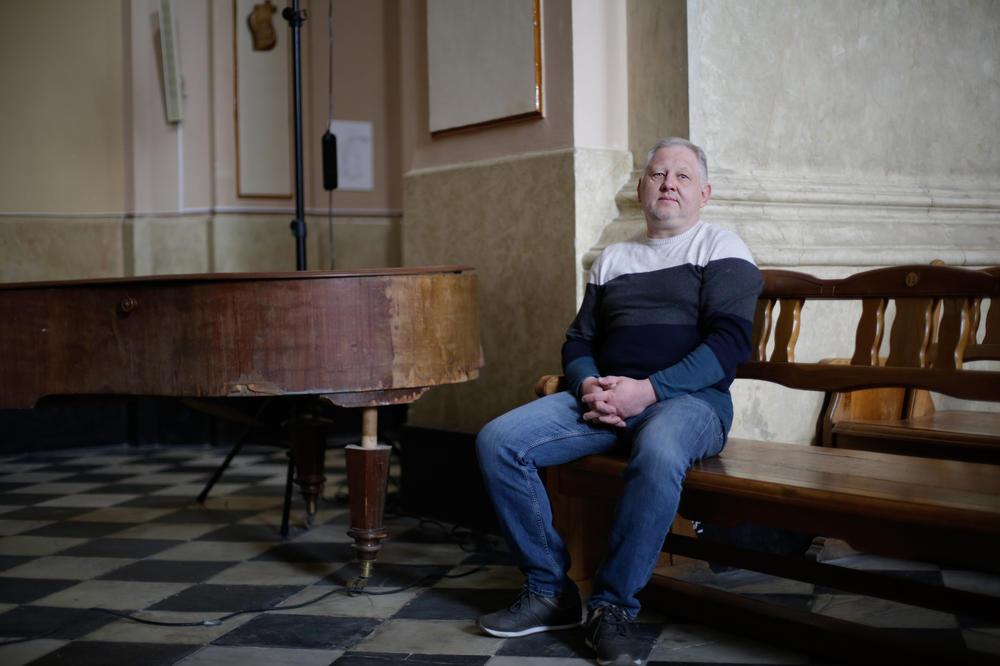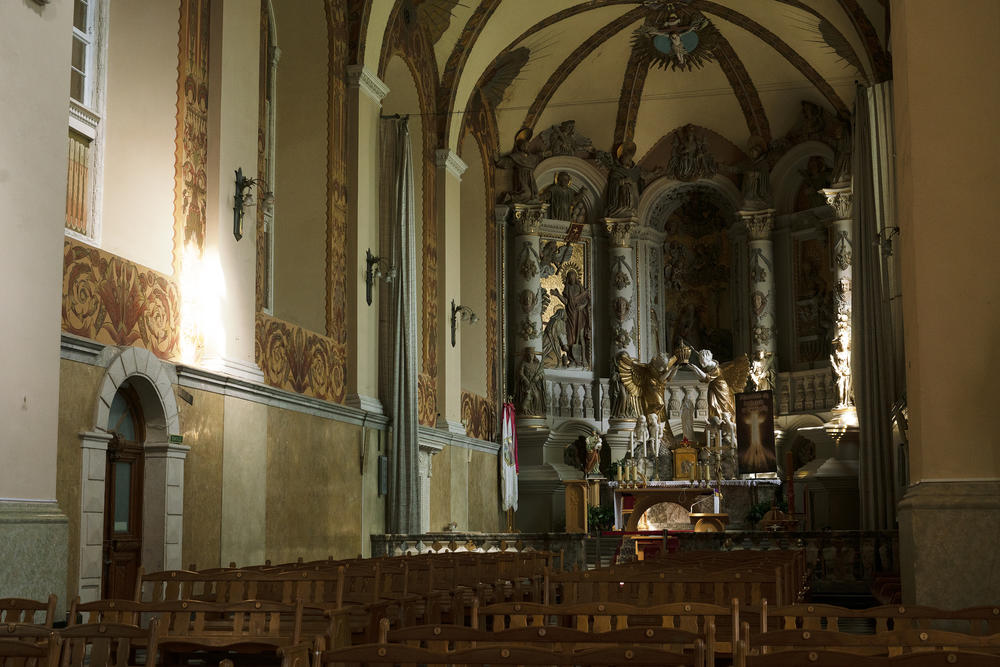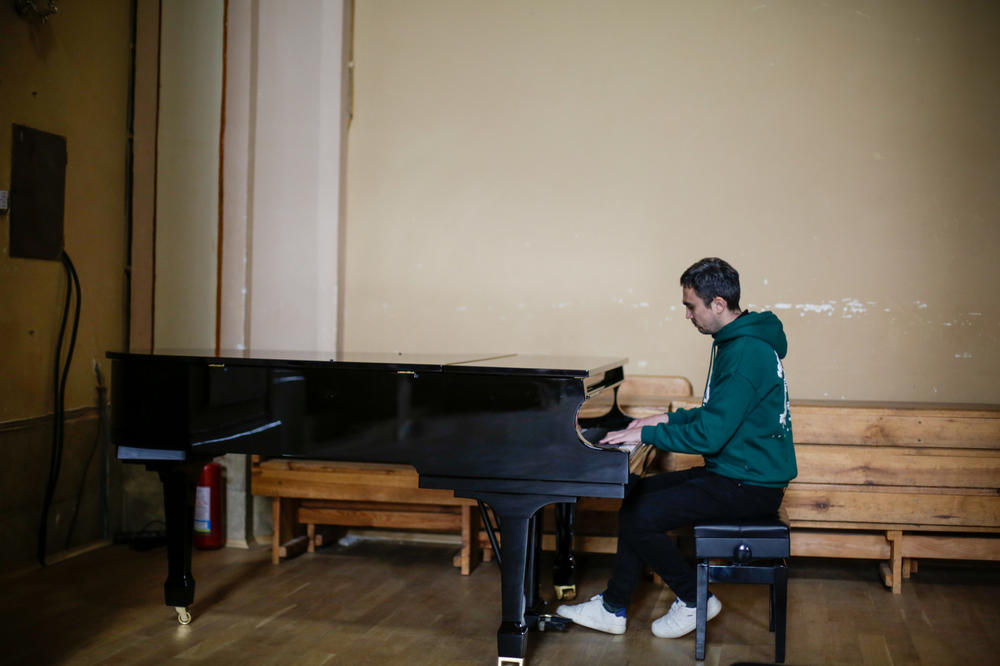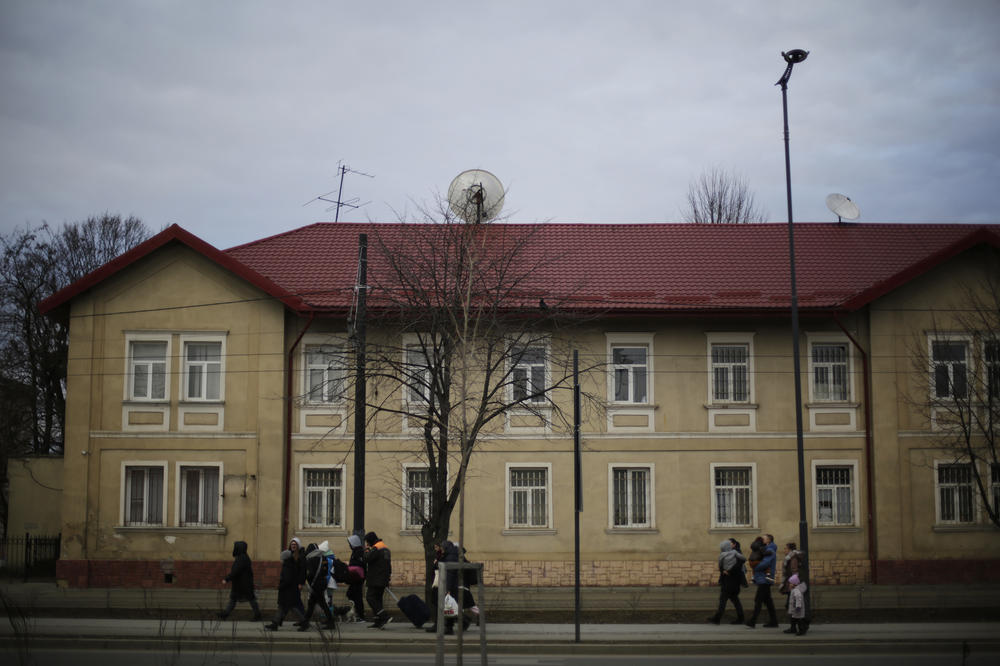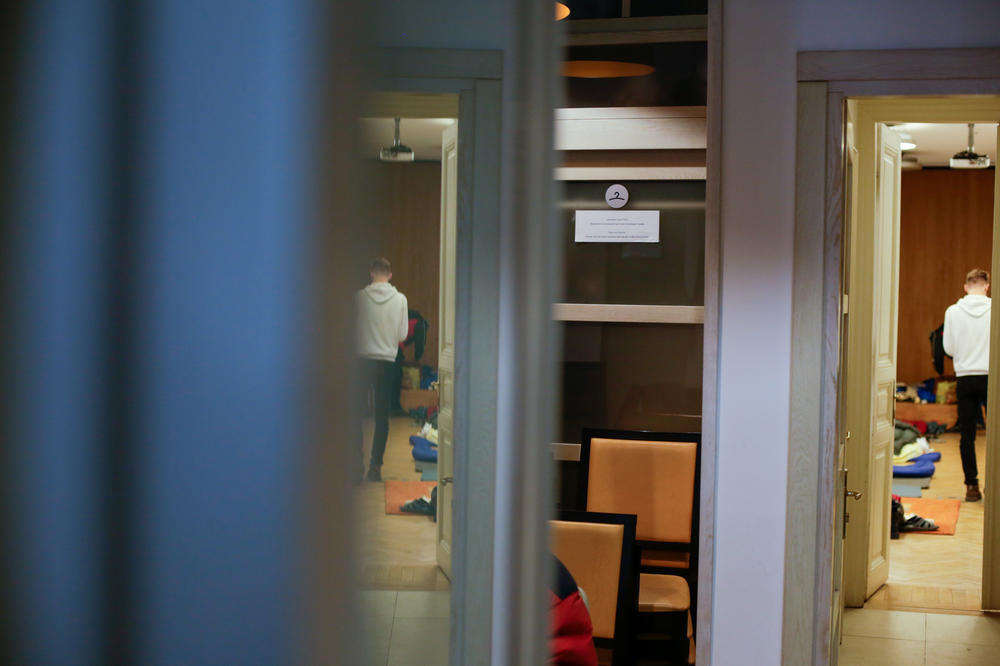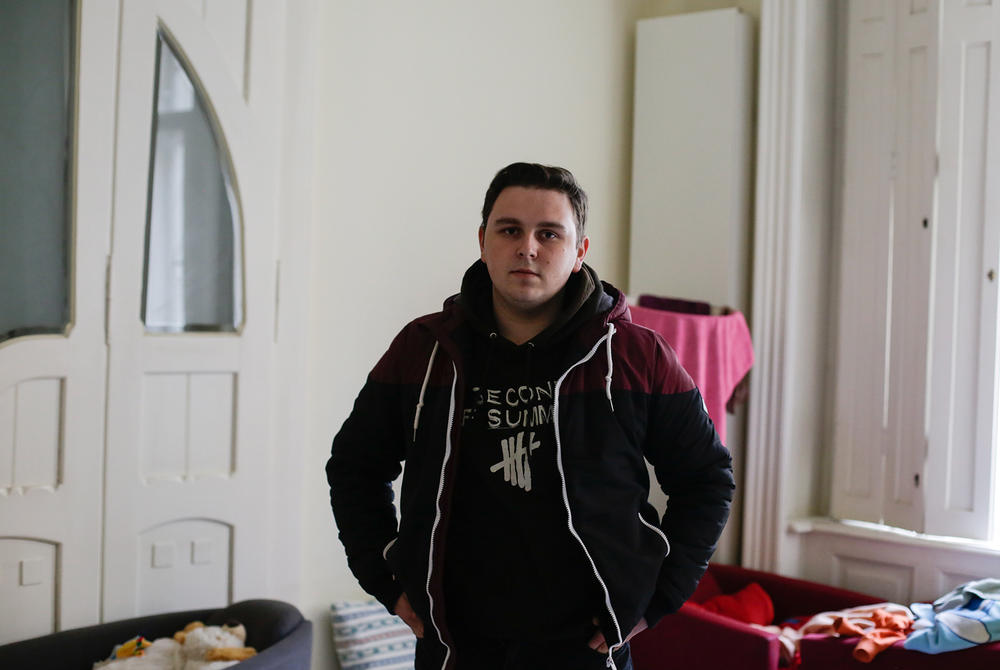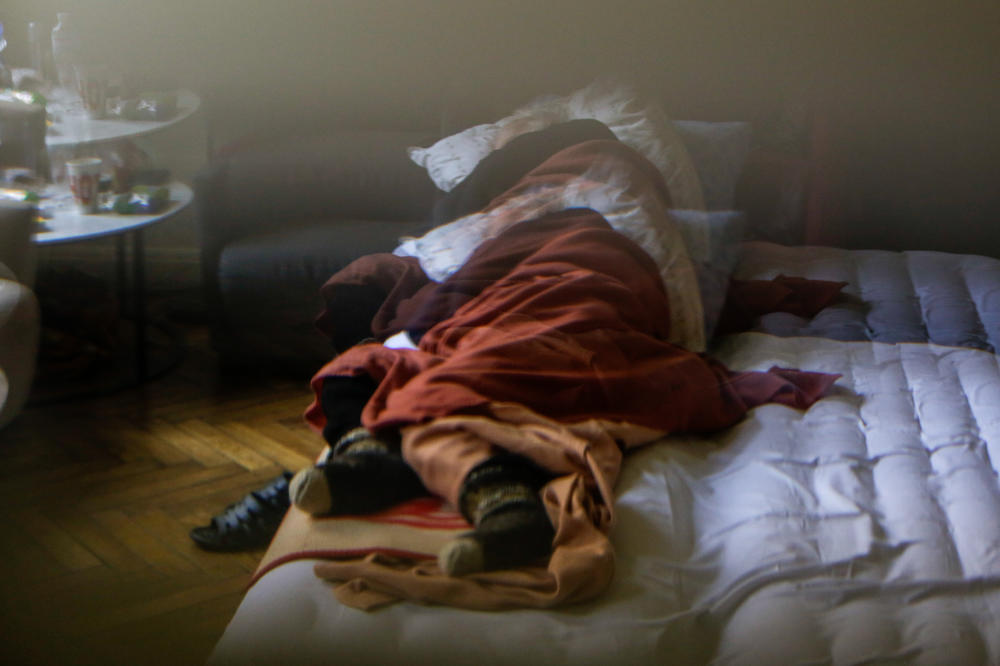Section Branding
Header Content
Lviv takes in displaced Ukrainians but space and resources are strained
Primary Content
The remarkable exodus of Ukrainian civilians from their homeland in the face of war has topped the 3 million mark.
Nearly 2 million others are internally displaced, according to the United Nations Refugee Agency. More than 200,000 of them have temporarily settled in the western Ukrainian city of Lviv, whose population is 725,000 in normal times.
Lviv residents have welcomed the newcomers with open arms. Businesses, government and civic groups have set up makeshift quarters in nearly 500 theaters, schools, gyms, yoga studios and homes. Others are distributing food and additional relief.
But space and resources are strained, and Lviv's mayor is calling for more international help as his city braces to receive and aid even more fellow citizens.
Russian forces have intensified their attacks in western Ukraine, launching strikes on airfields in cities to the south and north of Lviv, as well as a military base less than 30 miles from the city's center that killed 35 and and wounded more than 100 others.
Lviv, so far, has not directly been targeted.
"Whether a rocket might fall on Lviv tomorrow, I don't know," says Mayor Andriy Sadoviy. "Nobody knows."
Igor Shapovalov, the musical director of the Luhansk Philharmonic, recently fled to Lviv. Many of the musicians he leads are now helping the war effort.
"I think, right now, there are just more important things to do," he says. "Most of our team, our musicians, are volunteering at railroad stations — they help women with children, distributing aid."
Shapovalov is being hosted by his friend Ivan Ostapovych, a conductor, composer and Lviv culture director.
The Lviv Concert Hall, where Ostapovych typically performs, is now empty. He looks forward to people returning someday. Ostapovych says Ukraine's art and culture can help fight Russian President Vladimir Putin.
"We know that Putin claims that there is no Ukrainian culture — that we don't exist, as such. And so it is vital we show the world who we are and what we are. This is our culture," Ostapovych says.
Lviv's Center for Urban History has turned its lecture and conference rooms and cafe into makeshift shelters for the displaced. This center is a research institution, mostly for sociologists and historians accustomed to looking back into the city and region's complicated and contested past.
However director Sofia Dyak says that no one hesitated to shift their focus to this historic present.
"We are not objective, standing-aside academics. We are citizens, we are living here, we are human beings. It's important to think about not only how you're using, but how you're giving," she says.
But Dyak warns that a host of complicated challenges are fast approaching, well beyond finding more bed space: "It's about kindergarten, it's about medicine, it's about the whole social infrastructure."
The city now, she says, will likely need to scale up mobile capacities "for food, sleep, kids, education, care."
Vitali Frolov recently fled the Zaporizhzhia district in southeastern Ukraine. Some of his extended family have gone to Poland, but he worries about friends and relatives who have so far been unable to leave Zaporizhzhia. He's living temporarily in the Center for Urban History's former cafe.
Olena Lysenko contributed to this report.
Copyright 2022 NPR. To see more, visit https://www.npr.org.

